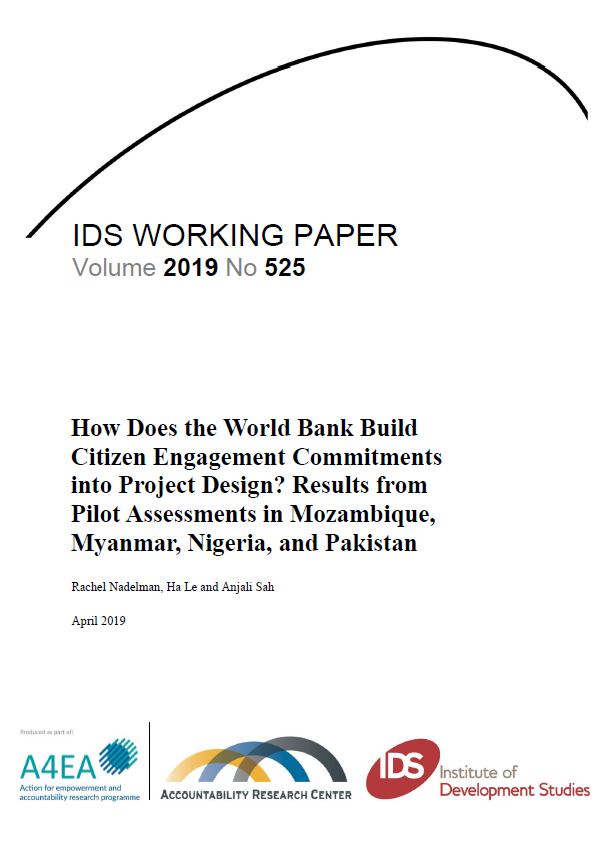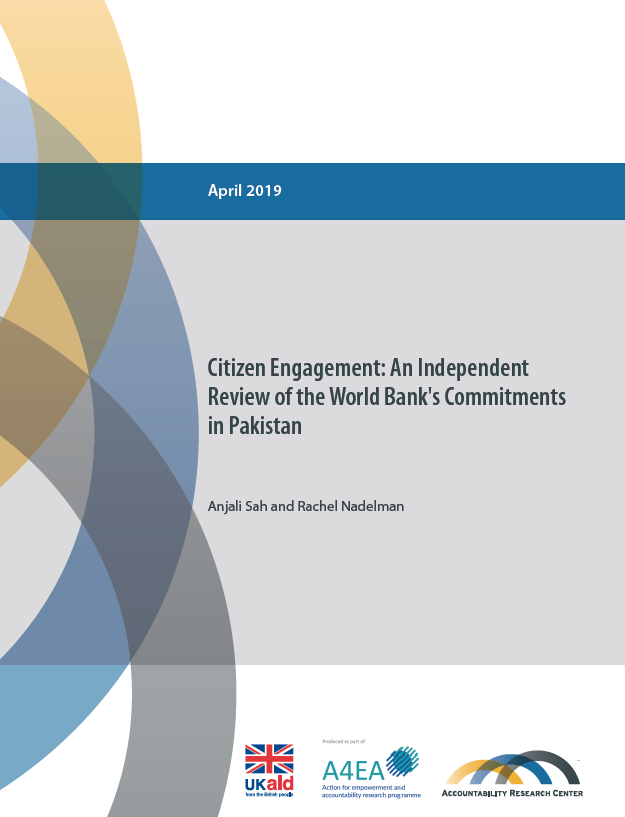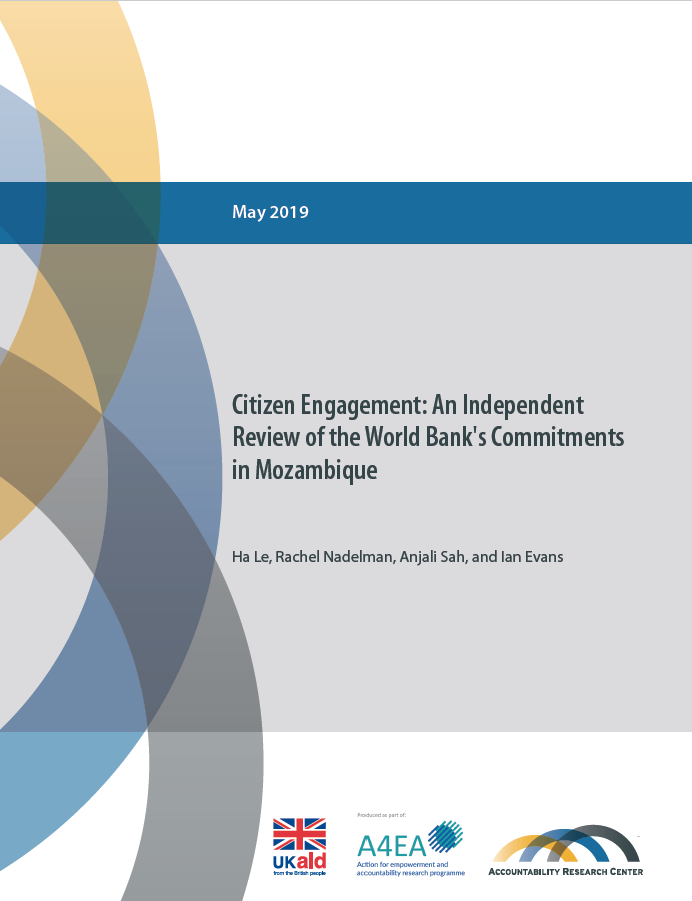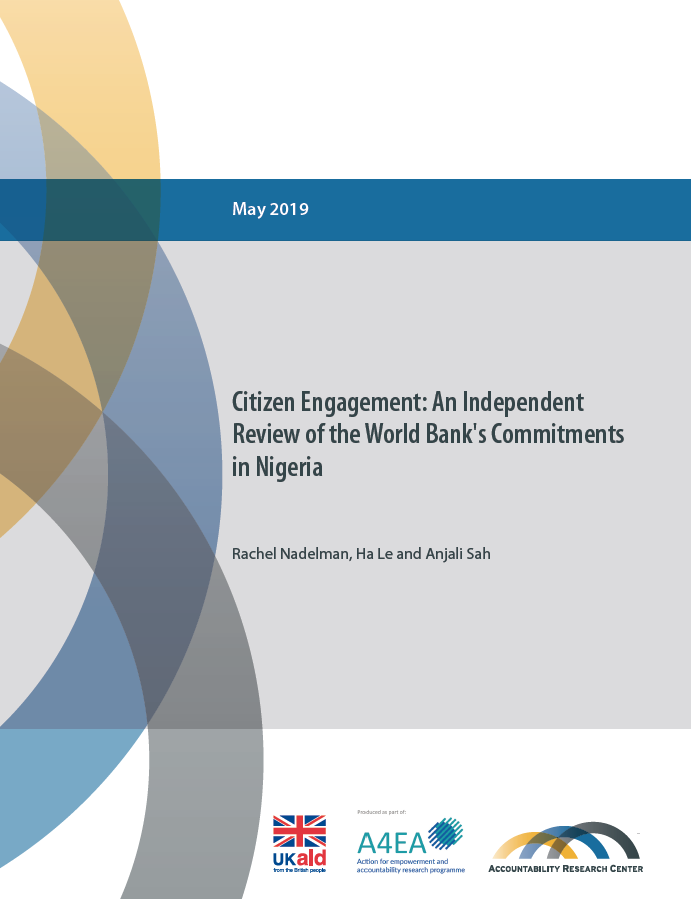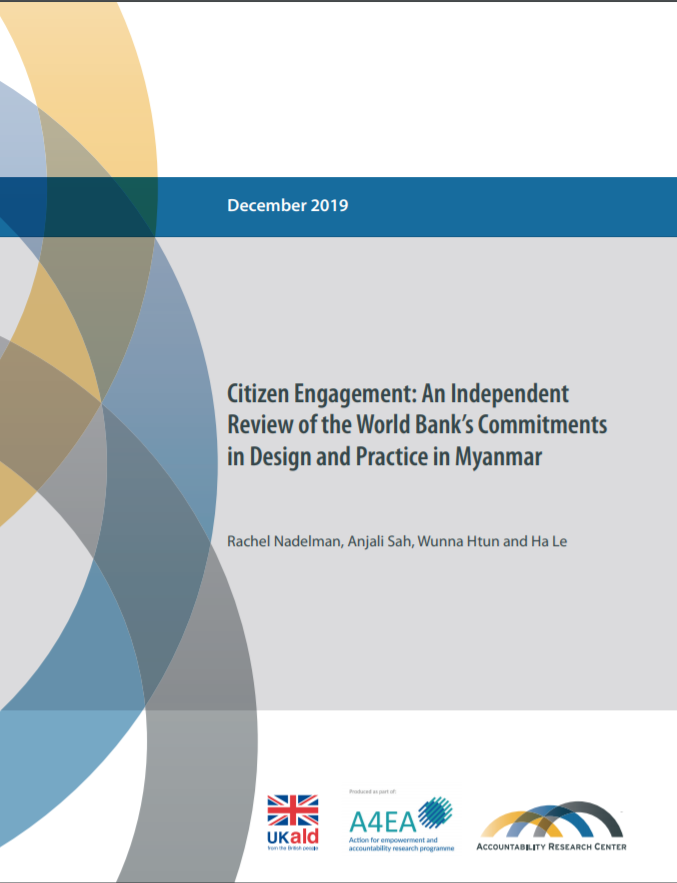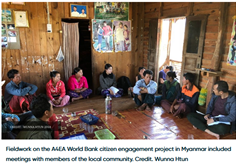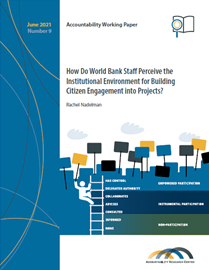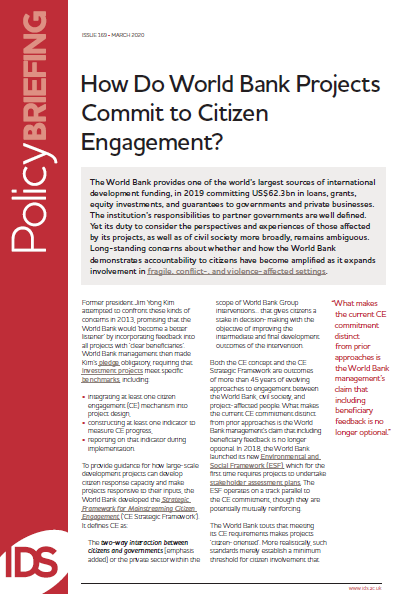
How Do World Bank Projects Commit to Citizen Engagement?
Date: March 2020
Author(s): Rachel Nadelman
Publication type: Policy Brief
Published by: Institute for Development Studies, Action for Empowerment and Accountability, Accountability Research Center
The World Bank provides one of the world’s largest sources of international development funding. The institution’s responsibilities to partner governments are well defined. Yet its duty to consider the perspectives and experiences of those affected by its projects, as well as of civil society more broadly, remains ambiguous.
This IDS Policy Briefing makes the following recommendations:
- Provide more explicit support to strengthen the enabling environment for citizen engagement (CE).
- Mandate that project operational manuals should be made public, readily accessible to citizens, and available in all national languages.
- Collaborate directly with national accountability institutions to protect citizen voice from reprisals and bolster state capacity to address accountability failures (e.g. ombuds agencies, audit bureaus, human rights commissions, public prosecutors, information access agencies).
- Systematically link the CE agenda with the Environmental and Social Framework, as these are mutually reinforcing.

Rachel Nadelman is a Researcher at the Accountability Research Center at American University. She has worked in international development for 15 years with a range of organisations including the World Bank, the German Development Agency (GIZ), American Jewish World Service, and the Institute of Development Studies. She has specialised in social development, primarily on issues related to social inclusion, women’s social and economic empowerment, and the intersection of environment and sustainable development. Rachel has a BA from Brown University, an MA in International Affairs from The New School and a PhD in International Relations from the School of International Service at American University.

